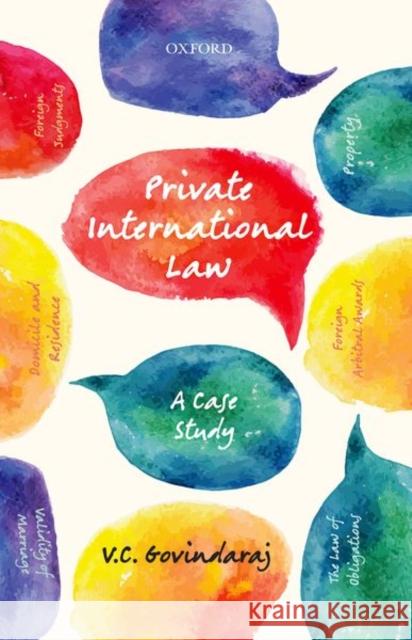Private International Law » książka
Private International Law
ISBN-13: 9780199489282 / Angielski / Twarda / 2019
Judges of superior courts in India lean heavily on English case-law and on the views of renowned English jurists, like Dicey and Cheshire, in deciding cases on private international law or conflict of laws. The time has come to evolve our own system of conflict of laws as did American Courts and American jurists in the course of the last two hundred years. This work deals with cases that call for comment in the three main areas of the subject, namely the law ofobligations, the law of persons, and the law of property, besides cases that call for comment in respect of foreign judgments and foreign arbitral awards, as also the law relating to procedure. The author critically analyses the leading Supreme Court cases, and provides his perspective on the applicationof law in each case. The idea is to state where judges went wrong in deciding complicated cases dealing with private international law so that corrective measures can be taken in future. The work aims to educate judges to decide accurately the cases involving complex legal issues of extraterritorial application of laws.
Private international law or conflict of laws deals with cases that have cross-border implications. The question involved is which state has the jurisdiction to decide a case involving complex inter-territorial issues. Judges of the superior courts in India lean heavily on English case-law and on the views of renowned English jurists, like Dicey and Cheshire, in deciding cases on conflict of laws. This book deals with cases that call for comment in the three mainareas of the subject, namely the law of obligations, the law of persons, and the law of property, besides cases that call for comment in respect of foreign judgments and foreign arbitral awards, as also the law relating to procedure.











